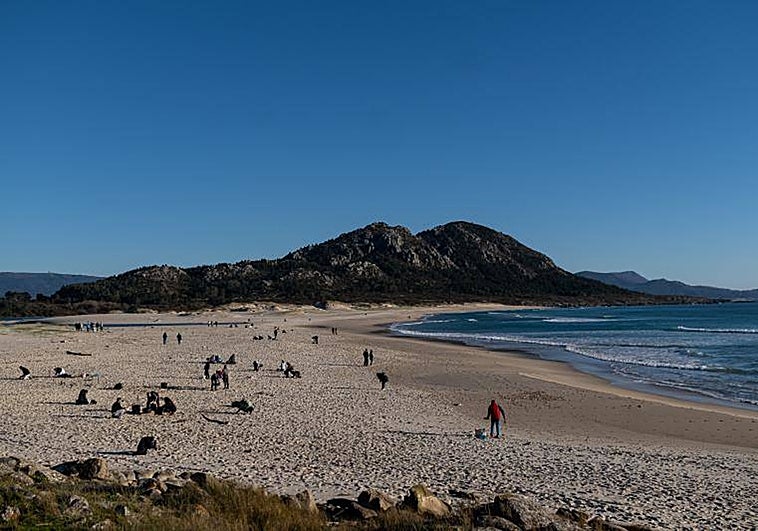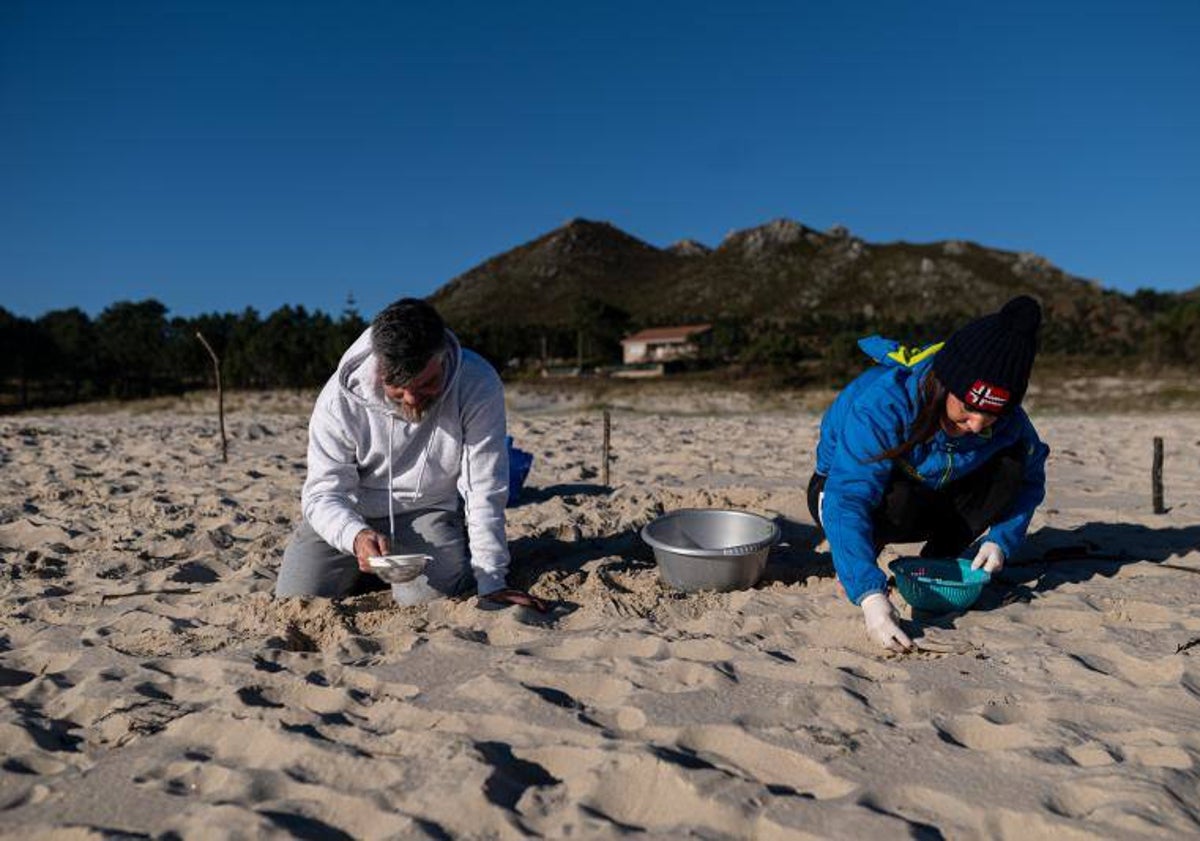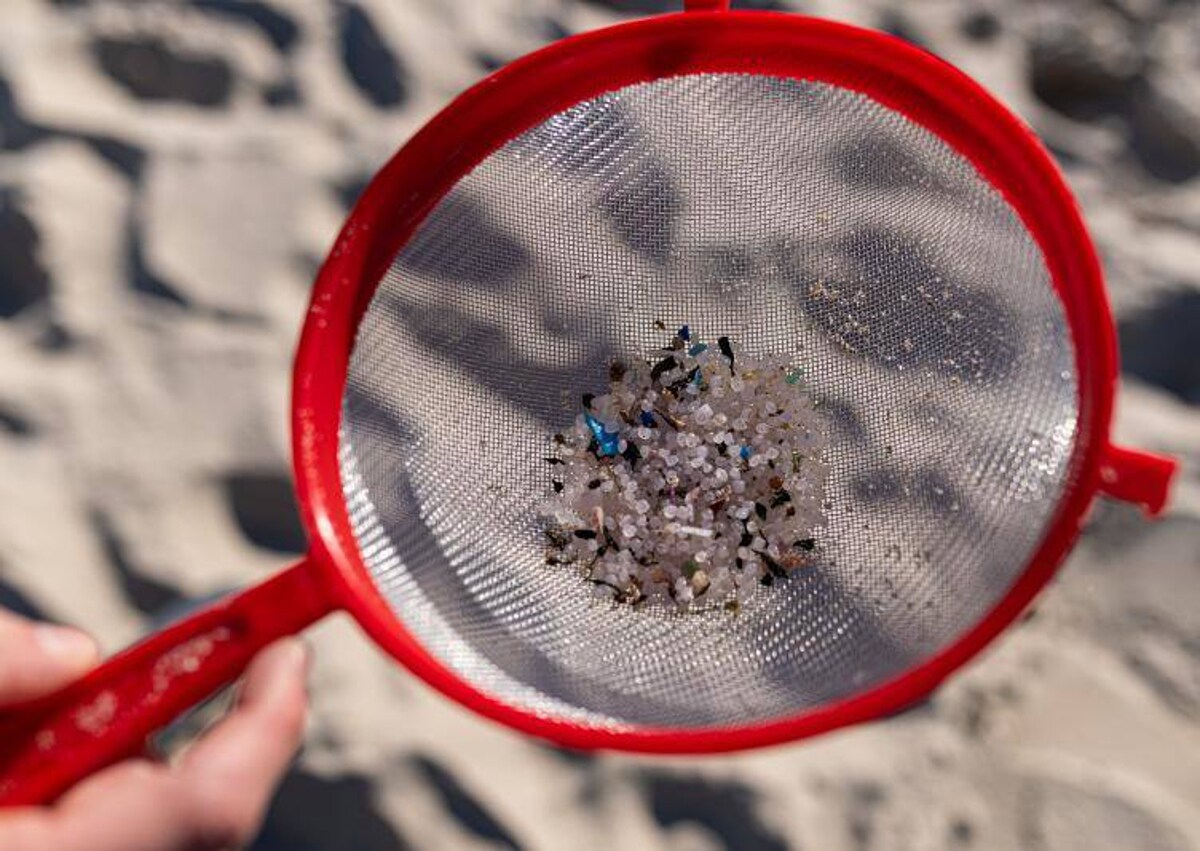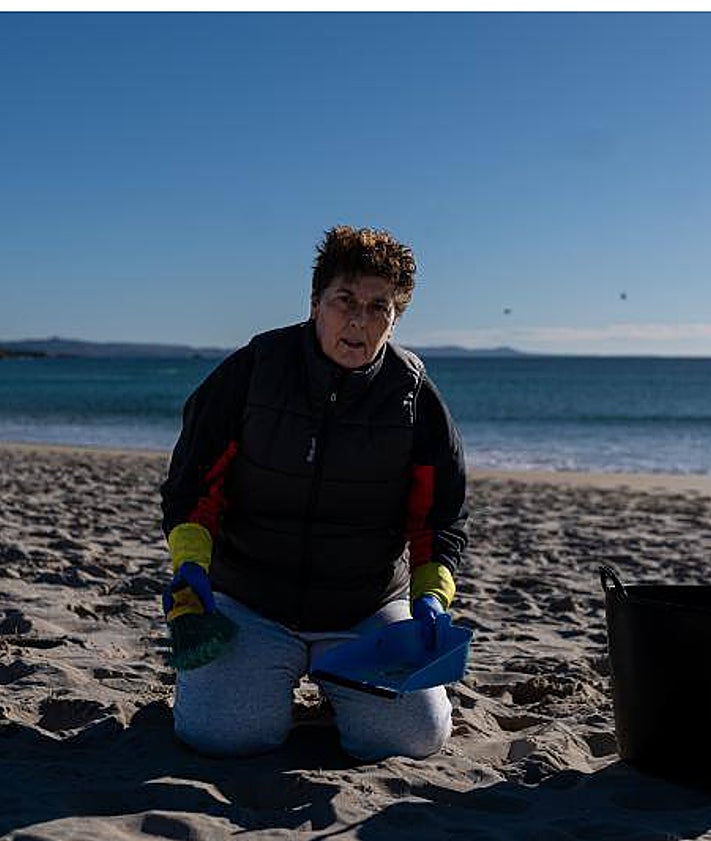
'Environmental disaster' after huge quantities of tiny plastic pellets wash up on at least thirty beaches in Galicia
The microplastics were being transported from Algeciras, in the south of Spain, to Rotterdam on a merchant ship which lost several containers at sea in Portuguese waters
J. A. Guerrero
Galicia
Tuesday, 9 January 2024, 10:55
The specialised environmental unit of Spain's state Prosecutor's Office will investigate the washing up of huge quantities of plastic pellets on at least thirty Galician beaches, in the north of the country and which have also reached the Asturian coast. The public ministry opened a file to monitor the situation on 4 January and has since announced that it has opened an investigation to determine whether there may be any criminal responsibility.
The pellets, microplastics that are used to make other plastic products, such as bags, bottles and containers, were being transported by a merchant ship that lost part of its cargo on 8 December in Portuguese waters. Five days later, the region's 112 emergency number received the first calls alerting of the arrival of the plastics spill to the Galician coast.
The investigation by the Prosecutor's Office comes at the height of angry arguments between central and regional governments, which accuse each other of "inaction" and trying to "warm up" the atmosphere ahead of the Galician elections on 18 February.
Meanwhile, fishermen's associations and environmental organisations have raised their voices. Some, like the Galician Arcos Iris, have demanded that the national government mobilise the Military Emergency Unit (UME) to help clean up an "ecological disaster" that they compare to the environmental catastrophe caused by the sinking of the structurally defficient MV Prestige crude oil tanker on 13 November 2002.
"Show signs of toxicity and are not biodegradable
Now, after that quagmire of crude oil was cleared, hundreds of volunteers have mobilised again to help clean the Galician sandbanks of millions of these tiny balls barely five millimetres in diameter (like lentils). Armed with infinite patience and sieves, kitchen strainers, bags, buckets..., hundreds of volunteers and workers from the regional Xunta are busy sifting the sand by hand to separate them, trying to prevent them from being buried on the beaches.
The preliminary report from the Prosecutor's Office stated that these plastic balls "show signs of toxicity, are not biodegradable and cannot be eliminated." The Ministry of the Environment and national government have offered to intervene and collaborate in the cleaning tasks, something that the regional administration "does not see necessary" at the moment.
The pellets began to reach the Galician coasts in mid-December and since then the tide has not stopped. They were transported by the merchant ship Toconao, flying the Liberian flag, which on 8 December lost six containers in the Atlantic when it was travelling through Portuguese waters, from Algeciras in the south of Spain to the port of Rotterdam, in the Netherlands.



According to the Minister of Transport, Óscar Puente, one of those 28-tonne containers (the others were loaded with tyres and metal parts, which have sunk in the ocean) was loaded with the plastic pellets packed in raffia bags. Some were washed up intact on the Galician coast on 13 December, but others broke up, scattering the microplastic material all over the coast, from Vigo and the Rías Baixas to Ferrol – according to the Prosecutor's Office, it also reached France.
Shellfish zone
Puente was critical that the regional Xunta did not activate the emergency collection plan until 5 January when, he said, they had information about what happened weeks before. "Since the 13th (December) there have been calls to 112 by people and institutions that have sighted the materials on the coast. Is Mr. Rueda not informed of these events? Doesn't anyone on his team know what's happening?" wrote the minister on social media network X.
Previously, the Galician president, Alfonso Rueda, had stated that the first official communication from the central government came on 3 January . In any case, Puente said he is waiting for the Xunta to "exercise its jurisdiction" and activate emergency Level 2 for accidental marine pollution, in order to be able to provide "effective support" in the collection and cleaning of the beaches.
The spill, meanwhile, has set off alarms in the shellfish areas of the Muros and Noia estuaries, in the province of La Coruña. It has also angered environmental organisations, which have denounced "the pollution" of the biodiversity of the coastline and the seabed.
Several environmental organisations and town halls have echoed the "passivity" of the two administrations in the face of what they consider "an unprecedented environmental disaster", which will have an impact on marine life and the ecosystems of the Galician coast. They warn of the risk that its effects "could be noticeable in the medium and long term, compromising the traceability of fishing and aquaculture due to its passage into the food chain." It is important to remember that fish (and birds) can ingest these pellets by mistaking them for food and thus ending up in the human body.
What are pellets and what are they used for?
Pellets are microplastics composed of polyethylene terephthalate (PET), which are used to manufacture plastic materials for household items. They were being transferred from Algeciras to Rotterdam on a merchant ship, which lost six containers. One of them was loaded with a thousand bags of pellets, weighing about 25 kilos each
The name of Bedeko Europe, a company based in Poland, is printed on the bags. Some sacks reached the coast intact. Others broke, spreading their content across at least thirty Galician beaches, and some have also reached beaches in western Asturias.